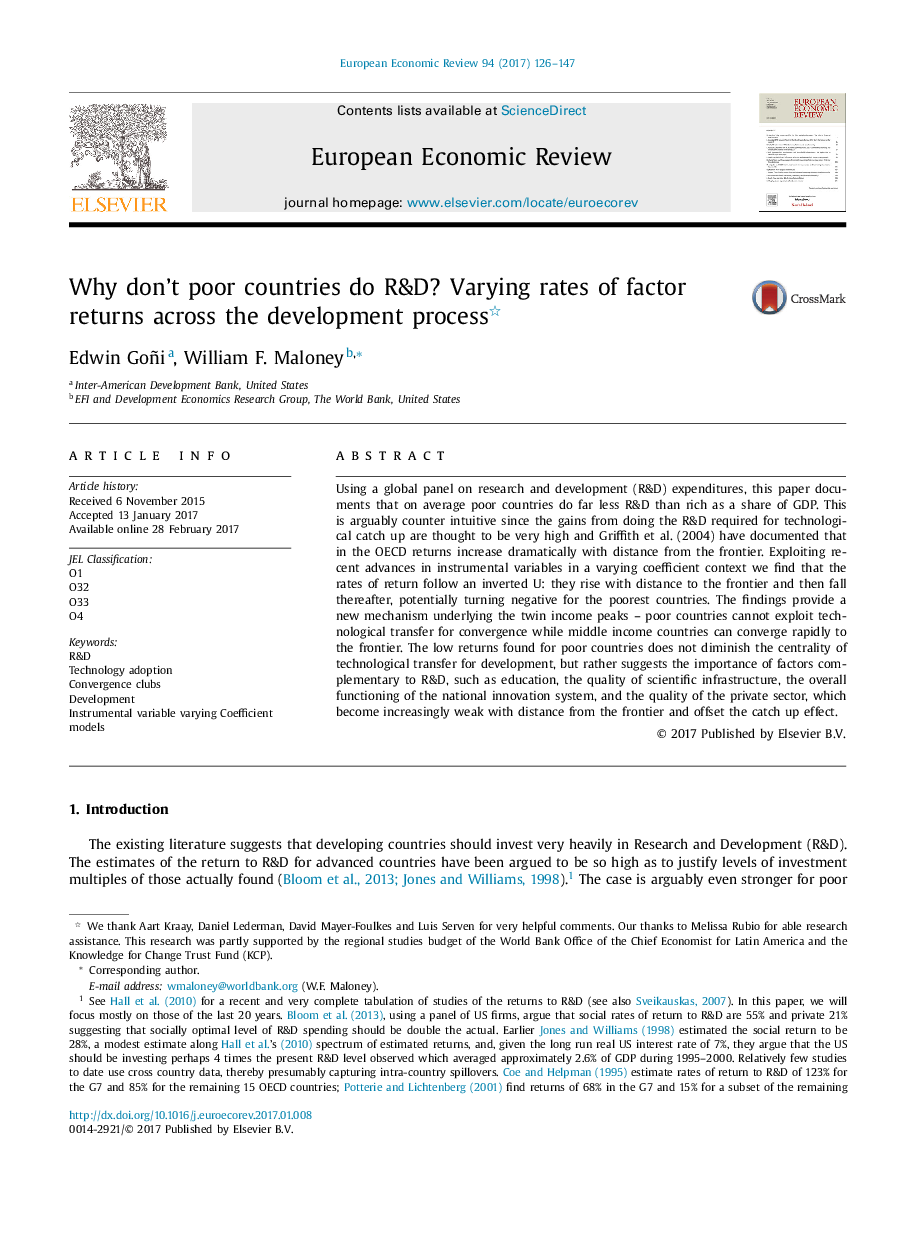ترجمه فارسی عنوان مقاله
چرا کشورهای غربی اهداف تحقیق و توسعه را انجام می دهند؟ نرخ های متفاوت عامل بازده در طول روند توسعه
عنوان انگلیسی
Why donât poor countries do R&D? Varying rates of factor returns across the development process
| کد مقاله | سال انتشار | تعداد صفحات مقاله انگلیسی |
|---|---|---|
| 96434 | 2017 | 22 صفحه PDF |
منبع

Publisher : Elsevier - Science Direct (الزویر - ساینس دایرکت)
Journal : European Economic Review, Volume 94, May 2017, Pages 126-147

